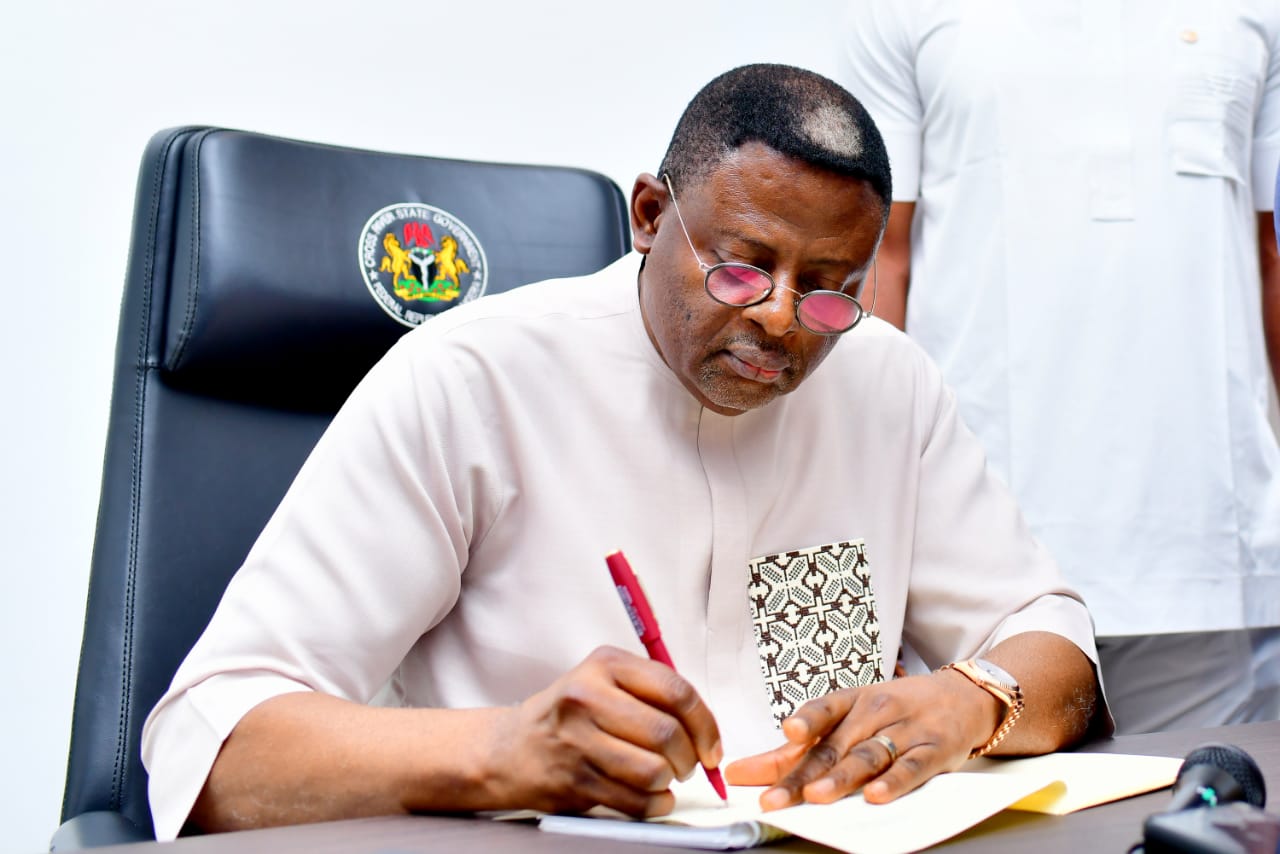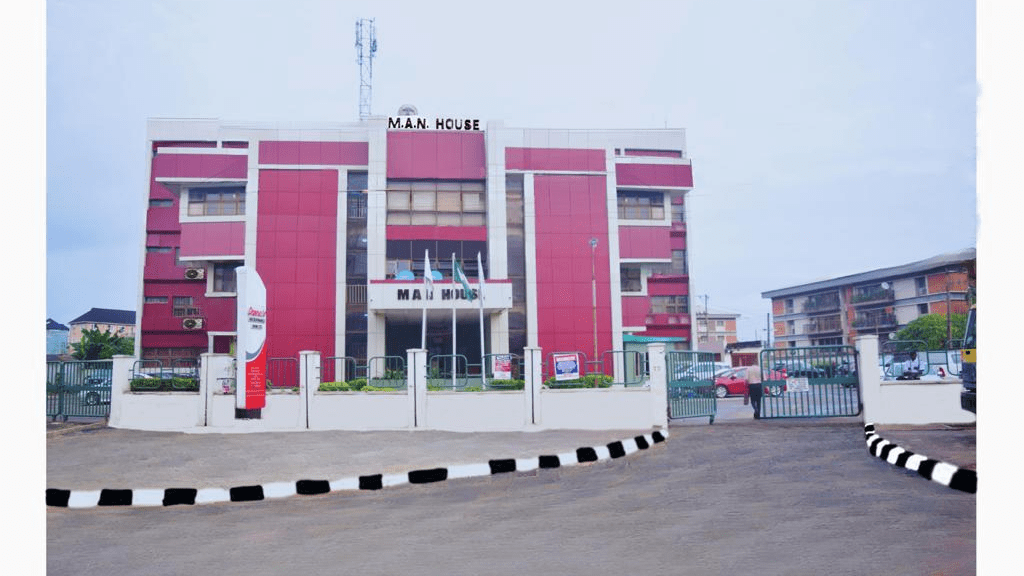By Tunji Olaopa
I will like to ask two fundamental questions that lie at the heart of this lecture. One, what happens when we situate AI at the heart of the institutional reform of the education sector in Nigeria? And two, how does that AI-inflected reform enable us to think more about the sustainability of the reform efforts? Thinking about the role and place of AI in Nigeria’s public sector reform points at both limitations and possibilities. We will begin to understand the magnitude of Nigeria’s educational dilemma once we take notice of where we are coming from. Colonization created a heterogeneous society divided along cultural, ethnic and religious lines. After independence, the Nigerian state had to struggle with thirty years of military regime before the commencement of democratic leadership in 1999. The point therefore is that any postcolonial state, like Nigeria, that has to reckon with an educational philosophy for such a diverse society needs to be adequately prepared. The National Policy on Education (NPE) indeed, has to factor into the realization of its objectives, Nigeria’s colonial heritage, the dominance of western education, the dismal economic performance of the past years, the growing demographic factors—like gender and youth—that has steadily increased the demand for education and human capital development. Lastly, and even more important is the political direction that the centralization of education administration too Nigeria despite the fact of our diversity and the implications of Nigeria’s federal status.
The first challenge of the NPE for me therefore is its fixation with what Paulo Freire has called the “banking” conception of education—the view that learning consists of pouring facts into the receptive and uncritical minds of the pupils and students. This is not a conception of education that can serve as the basis for a developmental education Nigeria needs to achieve her nation-building and development aspirations. In addition to this philosophical deficit in the NPE, the framework of the NPE also uncritically differentiates between the sciences and the humanities in ways that led to the discouragement of the knowledge of history and critical thinking as crucial elements that instigate in the students the balance of learning to know, learning to do and learning to live with others. This incoherent philosophical basis is therefore the reason why theory and practice, as well as expectations and outcomes, with regard to education in Nigeria are not matching up.
The second issue is that the education sector has also been caught up in the unitary federalism that the military imposed on Nigeria’s political culture. The implication is that the federal government is then forced to take up the burden that ought to be better creatively shared or that it ought to outrightly devolve to the other tiers of the federation. It is therefore not surprising, given the current state of Nigeria’s political economy, that the funding of the education sector came up as the number one issue. It is compounded by the depreciating quality and dwindling availability of facilities. There is also the lack of cogent data and statistics to back up the performance of the education sector across the states and local governments with significant analytics, policy-engaged action research, scenario planning cum prospecting and strategic policy intelligence.
Beyond the technical issues of low teacher quality, disarticulated teacher education, lack of integrated curriculum, lack of the recognition of non-formal education, the low status of technical and vocational education and the gender imbalance. I am more concerned with the larger question involving the overall disconnection between the NPE and Nigeria’s search for an economic and governance template that will be driven by the human capital development that the education sector is supposed to initiate and galvanise. The other dimension of this deficiency is that the Nigerian education system is not grounded in entrepreneurial and skill acquisition that prepare the students for the future, except to be unfortunate pawns in the scramble for white collar jobs. In other words, Nigeria’s education system is not generating wealth, nor is creating a national culture and values of self-dependence and self-reliance in the citizenry.
My final diagnosis has to do with the correlation between current curricula and modernizing aspirations that Nigeria needs for development. The curricular iteration of the education system in Nigeria is not matching up quick enough with the changing dynamics of the modern world. This is where artificial intelligence, the fourth industrial revolution (4IR) and the education sector intersect. The fourth industrial revolution is defined by the technological revolution, especially by telecommunication and digital technologies, that have erased the distinction we make between biological, digital and physical realms. It connects the human world with the operations of self-regulating and self-learning algorithms which all together outline an emerging knowledge society determined by significant developments from the Internet of Things and cloud computing to big data to automated machines and integrated systems. The biggest event of the 4IR is the emergence of artificial intelligence, and the total transformation of the way we look at human capacities and capabilities.
It is straightforward to immediately see how the impact of AI on the contours of the knowledge society affects how we reflect about the educational system. The larger picture therefore is that the pathway of a country’s connection to the 4IR is through an educational system that harness and deploy artificial intelligence and the digital technologies in facilitating an improved competency and skills capacitation of human capital that will eventually form the bedrock of the evolution of developmental state. AI and the other paraphernalia of the 4IR is the focus of every policy transformation that affect the education system of many societies across the world. It involves significant variations in curriculum, from entrepreneurship and ICT to digital education and STEM.
Quite unfortunately, the state of Nigeria’s education system reflects the state of institutional inertia that affects many of the critical sector of the Nigerian governmental sectors, especially the public service. I should know about this given I have spent the entirety of my professional life as a public servant trying to jumpstart and drive institutional reform. Despite the many benefits of AI to the educational system, its introduction into the Nigeria context challenges our infrastructural and institutional readiness. The 4IR needs power and significant investments in infrastructure to run, in order to be able to successful and optimally innovate the teaching and learning experience of faculty and students. It is within this infrastructural gap that Nigeria’s relationship with AI is still by default. This challenge is compounded by the extent of the digital literacy—how to make the smooth and seamless transition from chalkboard to chatbot, without replicating the educational gap that has already introduced social gaps across the country, especially between north and south.
Going forward, the starting point of an institutional reform of the education sector is to get the basics right. And that involves, in the first place, a critical shift away from the rampant tendency to load a surplus of models, diagnosis, best practices, concepts and modelling analytics on the education system by specialists and expertise who are sometimes themselves burdened by a conception-reality disconnect that allow them to throw all sorts of “solutions” without a demonstrating deep understanding of the problem at the level of getting things done, or of a fundamental policy-engaged research and evidence-based analytics, one grounded within an interdisciplinary community of practice. To get the basic rights, in connecting education design and implementation, requires a singularly pragmatic and strategic out-of-the-box problem solving managerial acumen. This pragmatic thinking enables the government to strategically optimize the scarce resources in terms of money, men, materials, machine and method (the 5Ms) that are synchronized to achieve performance and results within a result-based change management framework. This will include the capacity to create the balance in such vital performance indicators as access, relevance, quality, standards, internal and external efficiency and effectiveness, equity, internationalisation, etc., all within a framework of action that targets modernization through artificial intelligence and its multiple benefits and advantages.
And this unravels for us the significance of the Tinubu administration and its determination to push education to the forefront of national development, by connecting it with the 4IR. We need to first applaud the courage of approving a 7.3% (N3.52trn) budgetary allocation to education, the highest of such allocation in Nigeria’s history. And to also appreciate the forceful and pragmatic policy initiatives of the Honourable Minister for Education, Dr Morufu Tunji Alausa, in terms of the push for basic education, the revamping of Technical and Vocational Education and Training (TVET). The increased funding for education signals an education financing model, deepened by the Education Loan Fund, to catalyze and accelerate sustainable and inclusive national socioeconomic growth and transformation made imperative by an AI—driven transformation across all sectors.
In terms of change management dynamics, the government must fast track this ongoing institutional reform through the following dynamics that focus on higher education as a key locus for policy and developmental initiatives.The broadening of the institutional and administrative autonomy of tertiary institutions to allow for more robust objectives in their unique contexts. For instance, universities can be reprofiled in accordance with specific competences. Universities of education are different from agricultural universities or technical universities.
It is in line with this reprofiling imperative that I have made the call for scrapping the Higher National Diploma which can then be replaced with a Bachelor of Technology degree. This constitutes a pragmatic means of ending the protracted conflict polytechnics and universities in terms of skills pricing within the Nigerian society. More fundamentally, however, this recommendation enables the articulation of an expanded curricular and pedagogical content that focuses on an AI-inflected technical education whose objective is to rejig the employability capacity of Nigerian graduates, and rectify the deficit in the human capital development framework.
The education financing model also demands a deep rethinking that speaks to a public-private partnership in terms of how the university partners with critical stakeholders, especially industries and private enterprises in the pursuit of a functional research and development (R&D) protocol that keeps the university, and higher education, on its toes in terms of keeping sustainably abreast of the evolution of the 4IR. Public-private partnership is the key to preserving the sustainability of the education sector and its objective of an AI curriculum that the Nigerian state can harness in terms of the challenges of becoming a developmental state that is firmly inserted into the 4IR.
Finally, universities of education, like the EAUED, have a singular role to play in partnering with the federal government and other relevant stakeholders—Teacher Registration Council of Nigeria, Nigeria Union of Teachers, etc.—to ground pathways to quality teacher education and certification in terms of qualitative professionalism. A gatekeeping model that can strengthen an elongated internship cum teaching practices patterned along the houseman-ship programme in medical training. The other critical side of that partnership is the town-and-gown initiative that display the EAUED campus as a hub of critical relationship with industries in terms of scientific fairs, tech hubs and technological innovations that impact teaching and learning.
The change management strategy canvassed above hinge on two fundamental recommendations that situate the university and other tertiary institutions within the critical context of sustaining the reforms of the education sector and situating higher education within the context of human capital development of a developmental Nigerian state. The first recommendation concerns the need to delimit the significance of governance councils in the universities as the first strategic space for (a) transitioning universities away from traditional model to more contemporary entities with modern and standard operating system of management that facilitate AI-inflected curriculum and research; and (b) calibrating a curriculum and research framework that instigate policy direction for the government. Let me illustrate with a historical example. In 1967, the University of Ibadan was searching for the next vice chancellor after the exit of Prof. Kenneth Dike. The search threw up three eminently qualified candidates—Prof. Davidson Nicol, Sierra Leonian and former professor of medicine at Ibadan; Chief Simeon Adebo, former head of the civil service of the old western region, who had just completed his tenure as Nigeria’s permanent representative to the UN; and Prof. T. A. Lambo, Nigeria’s renowned psychiatrist. Prof. Nicol and Chief Adebo could not take up the job of VC at UI because they had to take up more strategic national responsibilities: Adebo was seconded to the UN to kickstart the United Nations Institute for Training and Research, and Nicol became the Sierra Leonean ambassador to the United States. Adeoye Lambo then became the vice chancellor.
This narrative is to reiterate the crucial point that Nigeria at a point—the golden era of the university system and of the public service—was also involved in the global practice of prospecting for individuals with proven managerial competence and skills (rather than just academics) to navigate the universities through the challenging time and dynamics of university governance. This becomes imperative within the dynamics of higher education management, just so that the leadership and governance framework can be properly and strategically positioned to confront the challenges of the multiple demands and imperatives of higher education in terms of fundraising, strategic planning, expanding institutional partnerships, deepening of public-private and university-industry partnership for more sustainable funding to enable significant administrative and financial autonomy, and overall, institutional development especially in the craving for quality, relevance, internationalization, and global ranking.
Universities in postcolonial Nigeria are therefore currently faced with the urgency of transcending the generalist orientation and politicization of the composition of their governing councils and the dire consequences of recycling managerial ignorance which has limited the growth of tertiary institutions and their capacity to backstop policy and developmental progress in Nigeria. Nigerian universities need proactive governing councils and leaders in the mold of Prof. Mazliham Mohd Su’ud of the Multimedia University, Malysia, that will stretch the capacity of the university for building systems, operational efficiency, resource allocation and utilization, process improvement, adapting new technologies, pedagogical approaches, and responding to societal demands, without losing academic focus, neglecting of core academic mission and values, and hindering academic freedom and research-rooted creativity. This is the only way the universities will stay ahead of the global push for an AI-inflected curricula and pedagogical practices that impact human capital development.
It is such a proactive and dynamic governing council and leadership that will be able to mediate the circumscribed concurrent significance of tertiary education in terms of the relationship of the university, polytechnic and monotechnic to national development. Unfortunately, Nigeria’s institutional dysfunction has already undermined this complementary relationship in favor of the ascendancy of the university, as if the university has the capacity to generate Nigeria’s manpower requirement for productivity turnaround. What is then needed is forward-thinking policy initiative that rethink the curricula design and innovation that focuses, for instance, on a dual-mode tertiary framework that could blend theoretical learning with practical application. Programmatically, this will ensure that the B.Ed degree will not eventually supplant the NCE certificate issued by the Colleges of Education. Rather, the CoE will be transformed into a dual-mode institutions with a built-in two-step NCE-B.Ed awards.
Finally, tertiary institutions cannot but face the critical significance and impact of industrial relations that pit management with employees and their labour unions. This is not too far-fetched as the continuing impacts of union activities—from ASUU, NASU, SSANU, and others—are felt on the optimal functioning of the universities and other tertiary institutions. My argument has remained consistent: there is an urgent imperative of transitioning away from an adversarial and militant unionism to a more developmental and technical-rational industrial relations. This will demand, in conformity with the institutional imperative of Nigeria’s federalism, first that we rethink the urgency of university autonomy, and the significance of a decentralized framework of industrial relations that ensure, for example, that labour unions are allowed to operate within the context of their university and its management. This will allow the university management and its labour unions to come to some mutual agreement on the best ways forward to facilitate the innovative working out of the university vision and mission, especially in terms of relocating the university into the 4IR through curricula and innovative strategies that situate artificial intelligence and its multiple benefits.
And there is no doubt that universities of education will play a very significant role in this rethinking of the need for the reform of the education sector and the place of higher education in that reform. Universities of education are core not only to the training of teachers, but singularly to the articulation of the curricular and policy innovation that will generate a philosophy of education Nigeria needs to reinsert itself into a developmental mode. Without incorporating the universities of education into that policy discourse, Nigeria’s human capital development initiative and its capacity to reap the benefits of the 4IR is already jeopardized.
*Being the 2nd Distinguished Personality Lecture of the Emmanuel Alayande University of Education, Oyo, delivered at its Oyo Campus by Prof. Tunji Olaopa, chairman, Federal Civil Service Commission, on August 11, 2025
The post Artificial Intelligence and Sustainability: Reforming the Reforms of Education in Nigeria appeared first on THISDAYLIVE.




